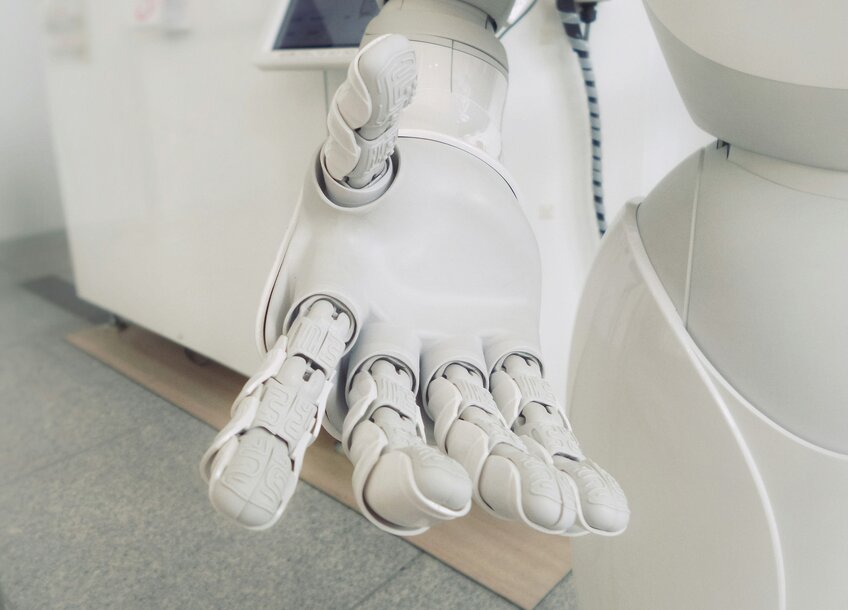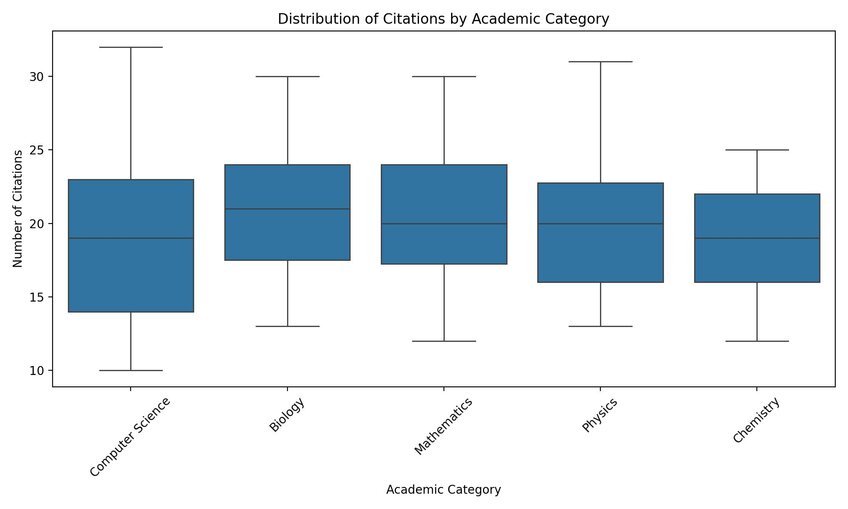August 28th, 2024
Top 4 AI Companies You Should Know in 2024
By Zach Fickenworth · 7 min read

Kickstarted by the explosion in popularity of the generative AI tool ChatGPT in 2022, the AI sector is growing massively. According to Grand View Research, the sector hit a market cap of $196.63 billion in 2023, with an anticipated compound annual growth rate of 36.6% between 2024 and 2030.
In short, AI is the next big thing in business.
It’s also going to impact your life on a wider scale, with proponents of AI claiming it will enhance everything from workplace productivity to your access to education. That’s why it’s so crucial that you learn about the top AI companies in the world – all may influence your life in the coming years.
#1 - OpenAI
When the average person thinks of the words “artificial intelligence,” ChatGPT is usually the first thing to come to mind. The generative AI platform sparked the current trend in conversational AI thanks to its ability to answer questions – and even write entire articles – based on a user’s prompts. That AI technology is the brainchild of OpenAI, which has quickly emerged as the leading company for developing large language models and machine learning models.
As of the end of 2023, OpenAI had around 770 employees, many operating out of its base in San Francisco, California. It’s also done a good job of staying largely independent – though it partners with and works alongside Microsoft, it isn’t owned outright by the tech giant.
As for its AI platforms, OpenAI is working on continuously updating its GPT language models – making their output even closer to the human level – and announced the reopening of its robotics research group in May 2024. That group will likely impact what it does in the future, as the possibility of robots that are capable of learning and identifying objects could be made possible with OpenAI’s technology.
#2 - Anthropic
Founded in 2020, Anthropic has already attracted $7.7 billion in funding and, like OpenAI, it operates out of San Francisco. It claims it’s focused on “frontier research,” with a focus on projects that treat AI as a systematic science. In other words, Anthropic is trying to veer away from the image of AI companies running rampant with new platforms that don’t take risk and consumer safety into account. Rather, each AI platform it creates is built within a framework of established safety techniques, meaning it isn’t deployed until the company confirms that it does what it’s supposed to do in a way that presents minimal risk to the user.
Right now, the company is working on the next step in AI model development – producing a platform that’s capable of reason based on the information that’s input. Bloomberg says that it’s competing with Google and OpenAI in that arena, with the concept of AI “reasoning” being a step beyond the simple provision of answers that current generative AI platforms offer. Through reasoning, an AI application will come closer to actually learning from the inputted data, allowing it to handle more complex questions than simple requests for information.
#3 - Google AI
It didn’t take long for the developer of the world’s most popular search engine to switch from decrying AI-generated content to trying to get in on the AI game. In fact, Google created Google AI in 2017, though it had actively been researching AI since 2011 with the creation of Google Brain. Granted, the company doesn’t yet have the best track record when it comes to AI assistant development. Its implementation of AI-generated answers into search results in 2024 resulted in a host of embarrassing responses, such as encouraging people to use glue when making pizza.
Still, Google has the financial muscle to get better. Out of a total workforce of about 140,000, Alphabet – which is Google AI’s parent company – has dedicated 7,133 people to working on AI products. Their work is mostly dedicated to Gemini, which is an AI platform that Google claims will become an entire ecosystem of products, platforms, and models. In other words, it won’t simply be yet another large language model to compete with the slew of others that have emerged in ChatGPT’s wake. Chat with Gemini – a platform with conversational AI capabilities – is the most obvious product of this ecosystem so far. However, Google is also making its Gemini API available to developers, in addition to a host of development tools, to make itself the breeding ground for the AI tech of the future.
#4 - Julius AI
Julius AI could be seen as a minnow in comparison to the other three top AI companies in this list. It’s not trying to build a massive AI ecosystem or develop the latest and greatest generative AI model for chatbots. Rather, the company is focused more intently on achieving a singular goal:
Helping students, researchers, and other academics sift through the mounds of data their projects generate.

Though the company behind the platform has just three employees at the time of writing, including founder and former UBC student Veer Bhatia, it’s been attracting a lot of attention from the giants in the AI world. Researchers from two of those mentioned in this article – OpenAI and Anthropic – have already invested heavily into the platform, as have founders of major tech companies like Zapier and Notion. That recognition from the industry marks Julius AI out as a platform to watch, meaning it should come as no surprise that it has already served over one million users despite only existing since 2023.
Look for Julius AI to become a leading name in the educational field in the very near future. Its tools already help academics to analyze data in reams of files in seconds (a task that would previously have taken days). It’s also capable of reporting on that data, representing it visually, and even helping researchers to problem solve and answer queries related to their datasets.
Make AI Work For You Better by Using Julius AI. Try It Out Today
Each of the top AI companies profiled in this article is doing exciting work. Open AI is spearheading the next generation of generative AI, with Google attempting to build an ecosystem that allows more developers to create AI platforms. Anthropic is operating at an even wider scale – it’s trying to bring responsibility and safety mechanisms into the AI field.
Then, there’s Julius AI. Though its focus is narrower, its work is as important as that of any other company on this list thanks to its educational focus. If you’re an academic – or someone who works in a field that requires a lot of data analysis – give Julius AI a try today to see if it can help you save time and effort.
Frequently Asked Questions (FAQs)
Who is the world leader in AI?
OpenAI is often regarded as a world leader in AI, thanks to its groundbreaking work in generative AI with platforms like ChatGPT and its advanced GPT models. With ongoing innovation in areas like robotics and machine learning, OpenAI continues to set the benchmark for artificial intelligence development.
Who is the biggest player in AI?
Tech giants like Google and Microsoft are often considered the biggest players in AI due to their extensive financial resources, large-scale projects, and integration of AI into their ecosystems. OpenAI, with its partnership with Microsoft, also commands significant influence as a key innovator in the field.
Who is the father of all AI?
John McCarthy is widely regarded as the "father of AI" for coining the term "artificial intelligence" in 1956 and his pioneering work in developing AI concepts. His contributions laid the foundation for the field, influencing modern AI research and technologies.
